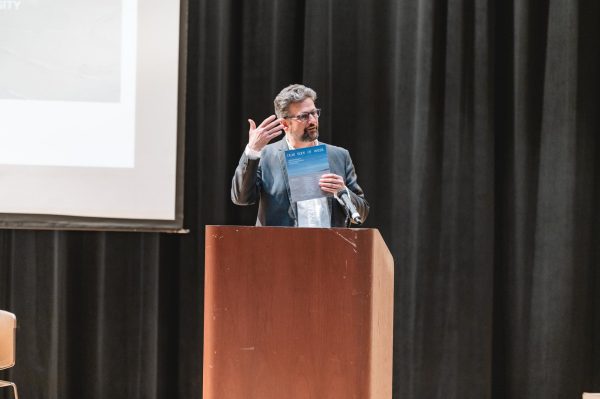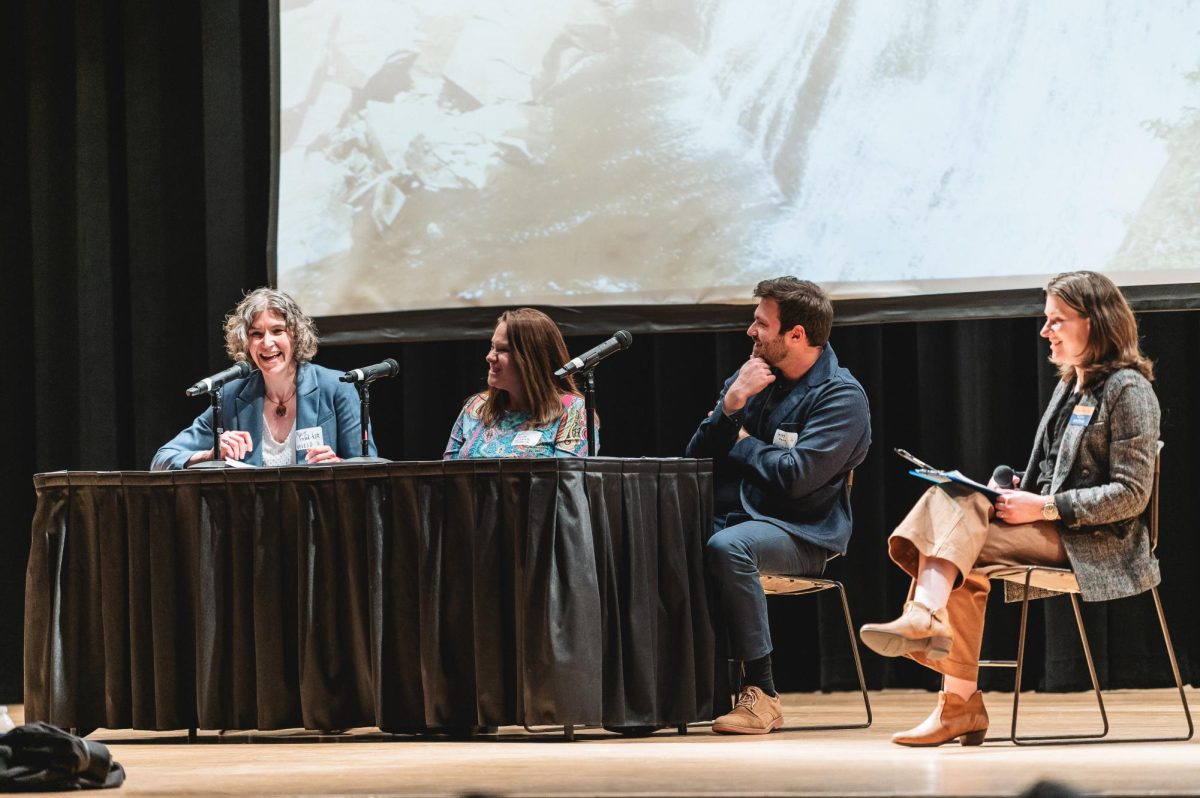As the campus-wide Race to Zero Waste continues, students and faculty of Kent State along with members of the community were invited to learn from experts about building better water systems.
Hosted by the Environmental Science and Design Research Institute (ESDRI) on Thursday in the Cartwright Hall auditorium, the Sustainability Forum: Building Better Water Systems was the first of its kind at the university. Evolved from previous years’ Water and Land Symposium, the forum was designed to discuss sustainability issues in a way that was more accessible to the general public.
Christie Bahlai, the co-director of the Environmental Design Institute said, “We decided on this format because it’s specifically asking the speakers to discuss ideas around sustainability with each other, and then inviting the audience to also ask questions. A lot of times we think of scientists as this thing outside of society… We want people to think of science not as a thing that is delivered to them, but as a thing that is dynamic and discussed.”
From the speakers they invited, to the audience’s participation in activities and questions, the ESDRI’s goal was to make the science of sustainability less intimidating, said Katherine Manning, a postdoctoral scholar in research development and an organizer for the forum.

“It feels like a more cozy setting… Opening with a poetry activity, getting to feel like you’re meeting the people rather than them just presenting at you, and then engaging in that discussion,” Manning said.
Bahlai explained that the guest speakers, Dr. Merrin Macrae, Dr. Gebby Keny and Marie Fechik-Kirk, were chosen because they each focus on applying the application of sustainability rather than just the science of it.
Merrin Macrae is a bio-geo chemist that focuses on applied systems, and she gives what she finds in her lab over to farmers about how to manage pollutants, Bahali said. “That’s a completely different perspective than we would typically have at a scientific conference.”
Then we have Marie Fechik-Kirk, who is the sustainability director in the Northeast Ohio regional sewer district, and thinks about how sustainability is applied in the context of public utilities.
According to Bahlai, there were around 70 people in attendance, a mix of students, professors and local residents.
Marwan Shalih, a doctoral student in biological sciences said, “I think the event was insightful, it was nice to get to know their perspectives as professional conservationists.”
“It feels insular having pierced the vale and seeing inside… Maybe it’s a matter of education itself being held for customers of education,” Kent resident Mike Wohlwend said. “I have some conflicting feelings, but definitely glad to hear the work and the care and the concern from the professional conservationists that were presenting”
The Campus Race to Zero Waste
The event was followed by an opportunity for attendees to enjoy provided concessions.
“We have been coordinating with the office of sustainability and catering to make our reception a green event,” Manning said.
Since the event was a part of the Race to Zero Waste, all the equipment and concessions were reusable such as cloth napkins and dishware. Along with no single-use items at the end of the event, all trash and recycling were collected, weighed and calculated with the attendance for the Race to Zero Waste.
Quintin Page is a reporter. Contact Quintin @qpage@kent.edu.

